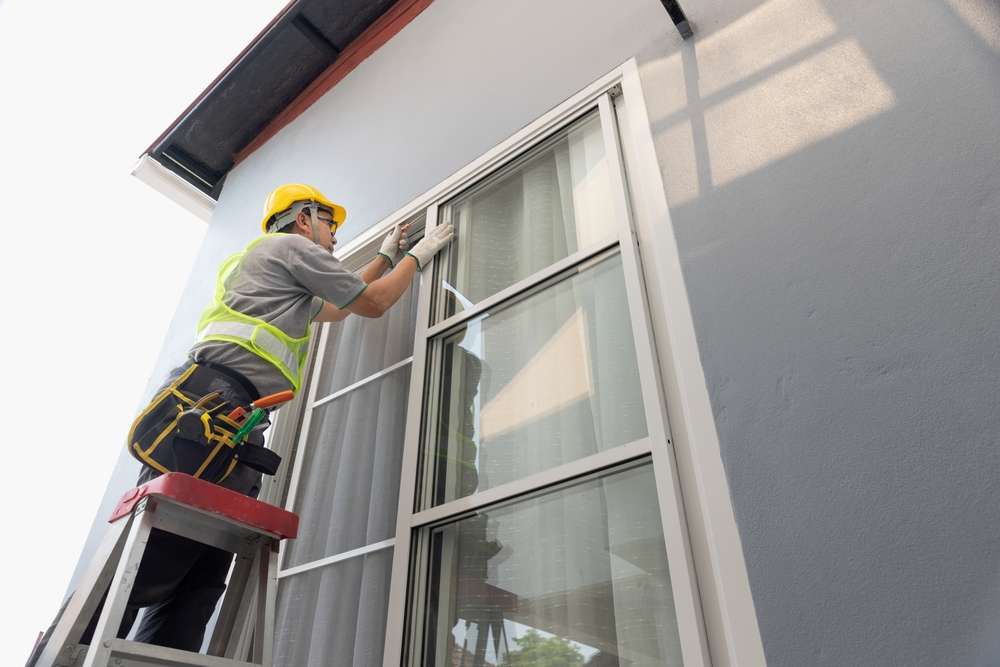Roof Replacement Guide: Make Your Property Last and Worth It
Roof replacement is crucial for maintaining the lifespan and functionality of your property. Problems like leaks, damaged tiles, and dampness, if left unaddressed, can pose significant risks. Whether you need minor repairs or emergency maintenance, understanding the range of better roof services available is essential.

Your roof serves as the first line of defense against weather elements, protecting everything beneath it. Over time, even the most durable roofing materials deteriorate due to exposure to sun, rain, wind, and temperature fluctuations. Recognizing the signs that indicate a need for replacement and understanding the process can save you from costly emergency repairs and structural damage.
Most roofs have a lifespan ranging from 15 to 50 years, depending on the materials used. Asphalt shingles typically last 20 to 25 years, while metal roofing can endure 40 to 70 years. Factors such as climate, installation quality, and maintenance frequency significantly impact longevity. Regular inspections help identify issues early, allowing you to plan for replacement rather than facing unexpected expenses.
Understanding When to Request a Roof Replacement Quote
Knowing when to seek a roof replacement quote requires attention to specific warning signs. Missing or curling shingles, granule loss visible in gutters, water stains on ceilings, sagging roof sections, and daylight visible through roof boards all indicate serious problems. If your roof is approaching the end of its expected lifespan and showing multiple issues, replacement often proves more cost-effective than repeated repairs.
When requesting quotes, contact multiple contractors to compare pricing, materials, warranties, and timelines. A comprehensive quote should include removal of old materials, installation of new roofing, disposal fees, and any necessary structural repairs. Detailed quotes help you understand what you are paying for and prevent unexpected costs during the project.
Residential Roof Repair Versus Full Replacement
Homeowners often face the decision between residential roof repair and complete replacement. Minor issues like isolated leaks, damaged flashing, or a few missing shingles can typically be repaired without replacing the entire roof. However, widespread damage, extensive leaks affecting multiple areas, or a roof nearing the end of its lifespan usually warrant full replacement.
Repairs provide temporary solutions and cost less upfront, but frequent repairs accumulate expenses over time. Replacement offers long-term protection, improved energy efficiency through modern materials, and enhanced curb appeal. Consulting with experienced roofing professionals helps determine the most economical and practical option based on your roof’s condition and your budget.
Finding Quality Roof Repair Services in Your Area
Locating reliable roof repair services in your area requires research and due diligence. Start by asking for recommendations from neighbors, friends, or family members who recently completed roofing projects. Online reviews and ratings on trusted platforms provide insights into contractor reliability, workmanship quality, and customer service.
Verify that contractors hold proper licensing and insurance coverage to protect yourself from liability. Request references and view completed projects to assess quality. Local contractors often provide faster response times, better understanding of regional building codes, and familiarity with climate-specific roofing challenges. Establishing a relationship with a trusted local provider ensures you have reliable support for future maintenance and emergency repairs.
Common Roof Repairs and Maintenance Needs
Regular roof repairs and maintenance extend your roof’s lifespan and prevent minor issues from escalating. Common repairs include fixing leaks around chimneys and vents, replacing damaged or missing shingles, repairing or replacing flashing, clearing debris from gutters, and addressing moss or algae growth. Seasonal inspections, particularly after severe weather, help identify damage early.
Preventive maintenance includes cleaning gutters regularly, trimming overhanging branches, ensuring proper attic ventilation, and inspecting seals around roof penetrations. These simple steps reduce wear and tear, improve energy efficiency, and maintain your roof’s protective capabilities. Addressing small problems promptly prevents water infiltration that can damage insulation, framing, and interior finishes.
Commercial Roof Repair Considerations for Business Properties
Commercial roof repair presents unique challenges compared to residential projects. Commercial buildings often feature flat or low-slope roofs with different materials such as EPDM rubber, TPO, PVC, or built-up roofing systems. These roofs require specialized knowledge and equipment for proper repair and maintenance.
Business owners must consider operational disruptions, safety regulations, and the need for durable solutions that minimize downtime. Regular inspections and preventive maintenance programs help avoid unexpected failures that could interrupt business operations. Working with contractors experienced in commercial roofing ensures compliance with building codes and industry standards while protecting your investment.
Cost Considerations for Roof Replacement Projects
Understanding the financial aspects of roof replacement helps you budget appropriately and make informed decisions. Costs vary widely based on roof size, material choice, structural complexity, labor rates, and geographic location. The following table provides general cost estimations for common roofing materials:
| Roofing Material | Average Cost per Square Foot | Lifespan | Key Features |
|---|---|---|---|
| Asphalt Shingles | $3.50 - $5.50 | 20-25 years | Affordable, versatile, easy installation |
| Metal Roofing | $7.00 - $12.00 | 40-70 years | Durable, energy-efficient, low maintenance |
| Tile Roofing | $10.00 - $18.00 | 50+ years | Long-lasting, fire-resistant, distinctive appearance |
| Slate Roofing | $15.00 - $30.00 | 75-100 years | Premium durability, elegant, natural material |
| Flat Roof Systems | $4.00 - $10.00 | 15-30 years | Commercial applications, various membrane options |
Prices, rates, or cost estimates mentioned in this article are based on the latest available information but may change over time. Independent research is advised before making financial decisions.
Additional costs may include structural repairs, upgraded ventilation systems, removal and disposal of old materials, and permits. Investing in quality materials and professional installation reduces long-term maintenance costs and provides better protection. Many contractors offer financing options to make roof replacement more accessible.
Choosing the Right Materials for Your Roof Replacement
Selecting appropriate roofing materials impacts performance, aesthetics, and cost. Asphalt shingles remain the most popular choice due to affordability and ease of installation. Metal roofing gains popularity for its longevity and energy efficiency. Tile and slate offer premium durability and distinctive appearances but require stronger structural support due to weight.
Consider your climate when choosing materials. Metal roofing excels in areas with heavy snow or high winds. Tile performs well in hot, dry climates. Ensure your choice complies with local building codes and homeowner association requirements. Energy-efficient materials with reflective properties can reduce cooling costs in warm climates.
Preparing for Your Roof Replacement Project
Proper preparation ensures a smooth roof replacement process. Clear the area around your home to provide contractor access and protect landscaping. Move vehicles from driveways and garages. Cover items in your attic to protect them from dust and debris. Inform neighbors about the project timeline, as roofing work generates noise.
Discuss project timelines, daily work hours, and cleanup procedures with your contractor. Weather conditions may cause delays, so maintain flexible expectations. Quality contractors provide clear communication throughout the project and address concerns promptly. A well-executed roof replacement typically takes several days to a week, depending on size and complexity.
Investing in roof replacement protects your property, enhances value, and provides peace of mind. By understanding the process, recognizing when replacement is necessary, and working with qualified professionals, you ensure your roof serves its protective purpose for decades. Regular maintenance following replacement maximizes your investment and keeps your property secure against the elements.




